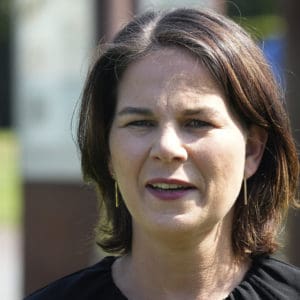I was witness to an incredible prayer recently. The young people came in distrustful and gave a clear signal: we don’t care. That was also proven by wore their masks, which quickly began to fall off their faces as time passed.
But when we began to pray to the Holy Spirit their walls broke down. The young candidates for confirmation left the prayer moved and dried their tears more or less discreetly. Some of them even dared to raise their hands during prayer, which probably risked them being later mocked by their peers from school.
The popular statement that Polish youth are withdrawing from their faith is false.
It assumes that they had suckled it with their mothers’ milk, inherited it from their forefathers or obtained it after attending religious lessons in schools (in the 2020/21 school years, 85.7 percent of students attended those lessons in Poland).
This is a false message. It is hard to leave a place in which one had never been in the first place.
Bishop Edward Dajczak told me about how he had given a survey to young people about their confirmation. “I asked about what they remembered from the process. The answers were devastating. All that was left were the most tiring things: signatures, stamps, attendance rates, and passing marks. The entire sacramental bureaucracy,” he said.
For this generation, the word “compulsion” does not exist. They can give up many things, but definitely not their freedom.
“What hurt me the most? None of them had mentioned the essence of the sacrament! Youth, often very distant from a personal experience of faith, are often forced by their parents to attend confirmation. They arrive at the church rebellious, and they are greeted by a priest who starts off by giving them a list of tasks and obligations,” he added.
Even if the priest had good relations with the youth, he lands on the opposite side to them. For this generation, the word “compulsion” does not exist. They can give up many things, but definitely not their freedom. Everything that smells of compulsion to them causes an allergic reaction. A barricade is formed and a conflict starts.
The greatest problem of today’s youth is a lack of personal experience with God. Yes, the real issue which we face as a Church isn’t the bureaucracy, but the issue of experiencing God which the youth does not have.
Yes! A personal acceptance of Jesus takes priority. All compulsory and traditional narratives must be put aside.
I recently browsed John Paul II’s personal notes, which he wrote into his calendar. One of the first ones reads: “March 5, 1979: Christ lives within us. Experience is more important than dogmatic formulas; to live with the One who lives within us in the most real way possible. It is His life within us, His presence, communing with Him that is the source of the strength of the testament which speaks out against all kinds of atheism, secularism and ‘death of God’.”
This is the quintessence of his pontificate!
Our task? To lead youth to meet the living Jesus and accept him as the Lord and Savior. This is a point of reference. Even if they later leave, they will have something to return to.
I considered this a week ago, when I saw how the Holy Spirit disarmed a group of almost 50 teenagers.
I was reminded of the words of the former Swedish pastor and founder of the Livets Ord Church, Ulf Ekman. While visiting Jerusalem, he approached a dried-out fig tree. As he remembers, in that moment, he had heard in his heart: “Ulf, never call dead that which I can give life to.”
When Ekman took a closer look at the tree, he noticed that it had small, green buds.





